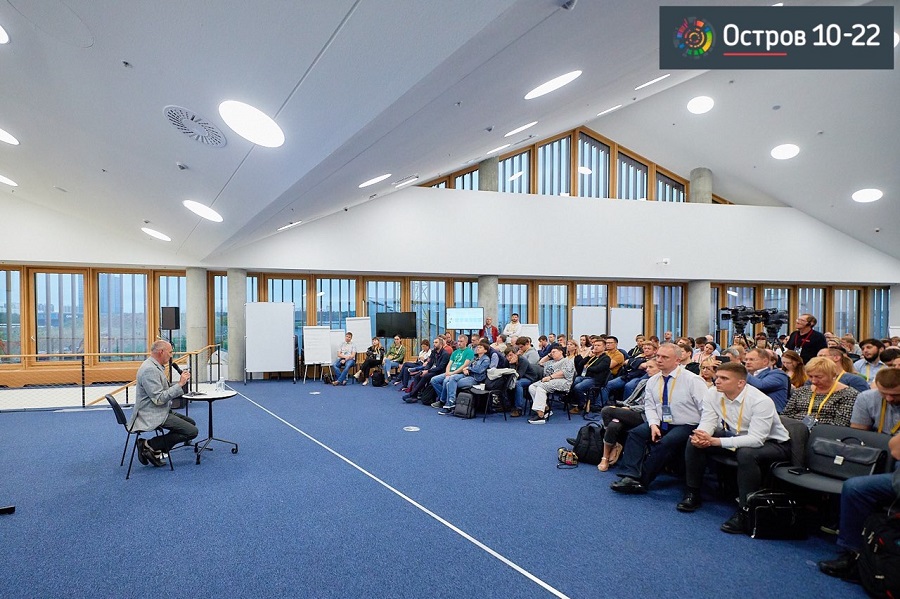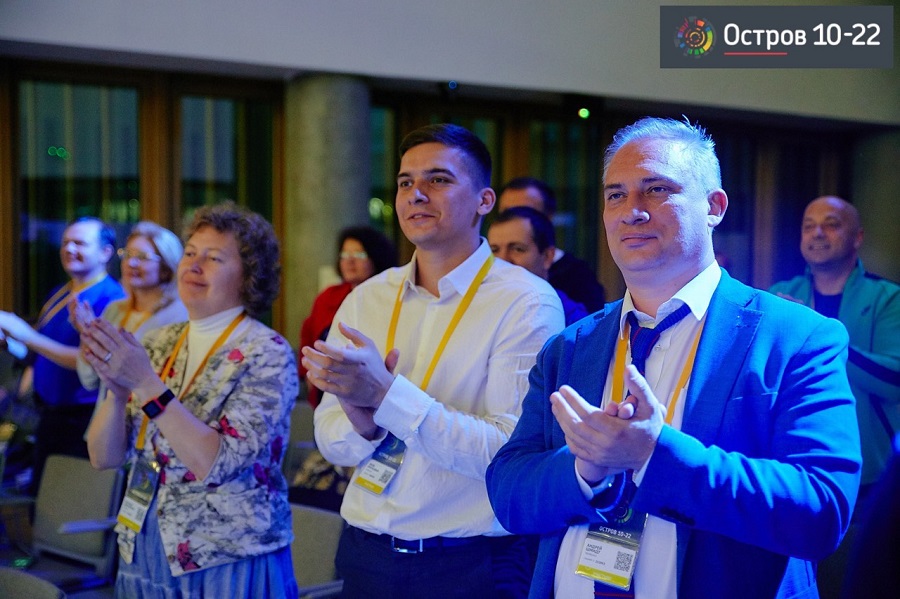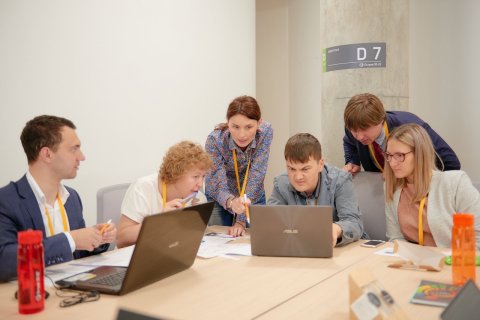SUSU representatives keep working at the educational workshop called “Island 10-22”. One of the key advantages of the Island is the possibility to get submerged into the world of various knowledge and competencies in a maximally short period of time, receive consultations from unique specialists, establish new business contacts and put them into action right away. There are 10 faculties, 78 laboratories and 26 thinking clubs operating and 568 lecturers from higher education institutions of Russia and the world working at the Island. During the workshop, members of the SUSU team take active participation in operation of laboratories and in master classes.
Head of the Department of Economics of Business and Project Management, Natalia Dzenzelyuk, and junior research fellow at the Research and Innovation Services office, Irina Podzhivotova, talked about their impressions of the educational workshop’s days filled with useful experiences.
“Upon recommendation by the artificial intelligence (which forms the trajectory of participants’ stay at the Island based on the results of preliminary activities), for the initial five days of the workshop operation I was working as part of the laboratory entitled ‘Online as a Business: How to Launch Online Education at a University Quickly and Qualitatively’,” says Natalia Dzenselyuk. “We were elaborating the educational policy of universities regarding the development of online learning at a higher education institution.
The laboratory gave me a chance to speak with unique specialists in person. Among speakers of the laboratory was the First Executive Director of ASU Online, the architect of online learning, Chief Operations Director of the Office of Digital Learning at the University of Arizona (USA), Kari Barlow; co-founder and Director General of Peergrade (free online platform providing feedback from students), David Kofoed Wind; founder and Program Director of #EdCrunch, Development Director of NUST MISIS, Nurlan Kiyasov.
In the course of the laboratory operation, we studied the best experiences of the world’s best universities and companies on web content development and on production and promotion of online courses; we also planned the launch of an online course, determined elements of the curriculum and progress strategy, and accounted budged. In the end, we defended the project on introduction of online technologies to the educational process of our home university (it should have been targeted at the strategy of the university’s development).
Our mini-team featured representatives of State University of Management (Moscow) and Moscow Polytechnic University. For me personally, the most important thing in the laboratory operation was to realize that our university hold leading positions in many directions, including both online and distance learning! Within the team, we discussed with representatives of other universities the things that they are only planning to implement in the sphere of online technology. At that, I noted for myself that SUSU has already accomplished these goals in online learning three to five years ago! In the course of the work, it was very interesting to get the experience in communication and have a look at the problems through different eyes. This helped seeing new directions for improvement of services that have already been introduced at our university.”

In the second half of operating at the Island, Natalia Dzenselyuk joined the laboratory on Advanced Training of Cadres:
“The purpose of our work at the laboratory on Advanced Training of Cadres is to evaluate the demand of economy in various specialists and understand the principles of such a demand formation. One of the traditional complaint of employers to many higher education institutions is training of not-demanded specialists. In the course of the laboratory operation, together with representatives of other universities, we will try to determine the mechanism of formation of employers’ demand for specialists and prevent the risks of their complaints. The work is going to be very interesting! I hope that we elaborate a product which we will be able to use at our home universities.”
In the course of working within the Island, junior research fellow at the Research and Innovation Services office, Irina Podzhivotova, took part in laboratories entitled “Technological Entrepreneurship and Technology Transfer” and “Architecture of Entrepreneurial Activity at a University”.
“Today our university is actively developing as a technology partner of the innovation business; this is exactly why participation in the laboratory on Technological Entrepreneurship and Technology Transfer was especially important for me,” emphasizes Irina Podzhivotova. “At the laboratory, I found myself surrounded by like-minded people. I managed to get familiar and communicate with colleagues and experts from other institutions and adopt their positive experience in the sphere of technology transfer to the real manufacture. The university is an equal partner for the big business and can act as a platform for entrepreneurial activity, as well as being an intermediary between the big business and innovative projects. In the second half of the Island’s operation, I chose participation in the laboratory on Architecture of Entrepreneurial Activity at a University. I look forward to the results of the second five-day period of the workshop.”
The halfway point of working at the Island has already been passed. Participants continue their intensive submergence into the world of new technology, learning the tools of project management and specificity of introduction of innovative scientific inventions into the industry. Waiting ahead is summarizing the results and evaluation of





